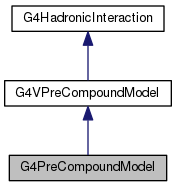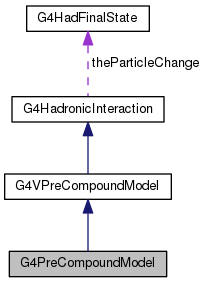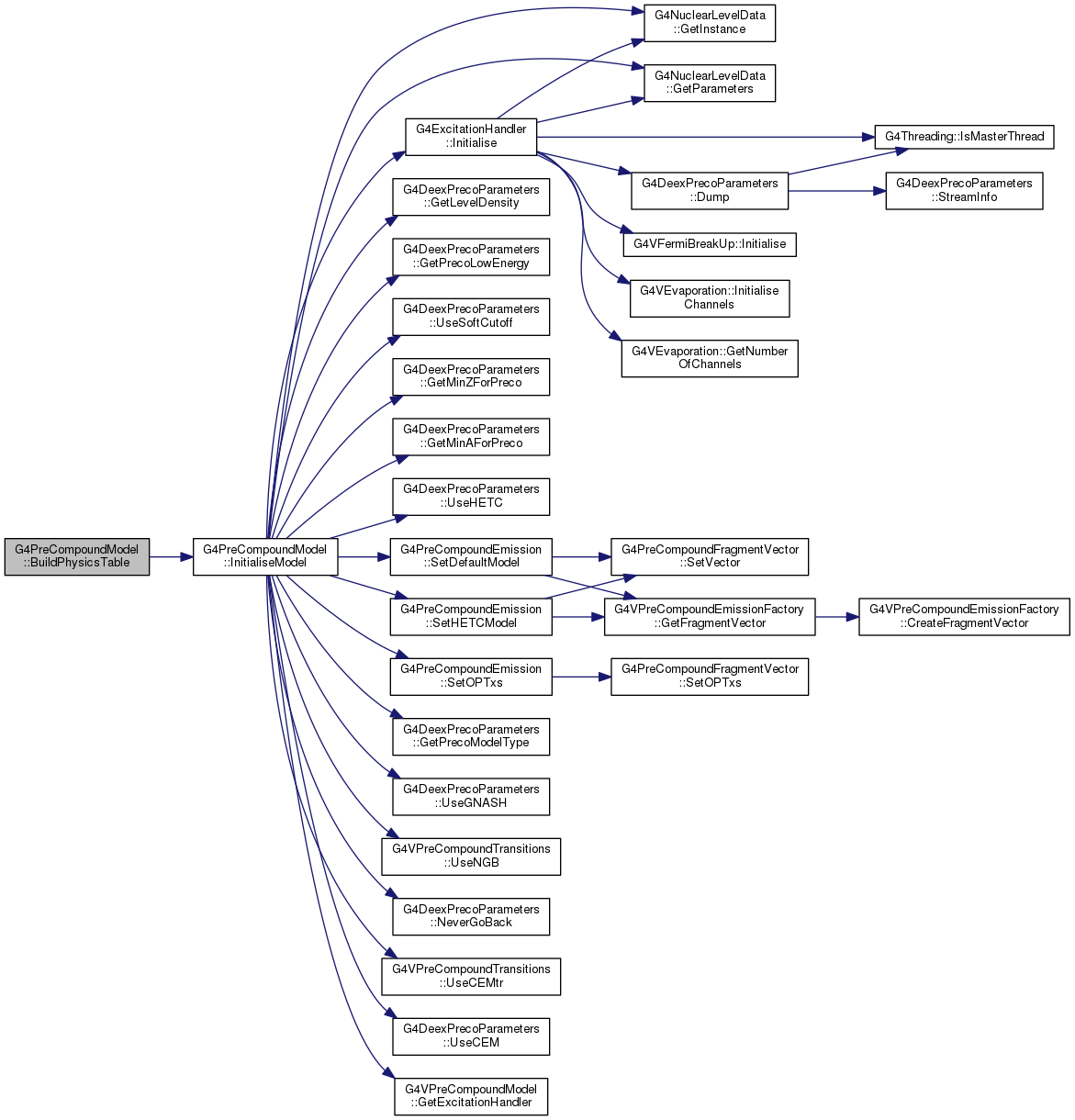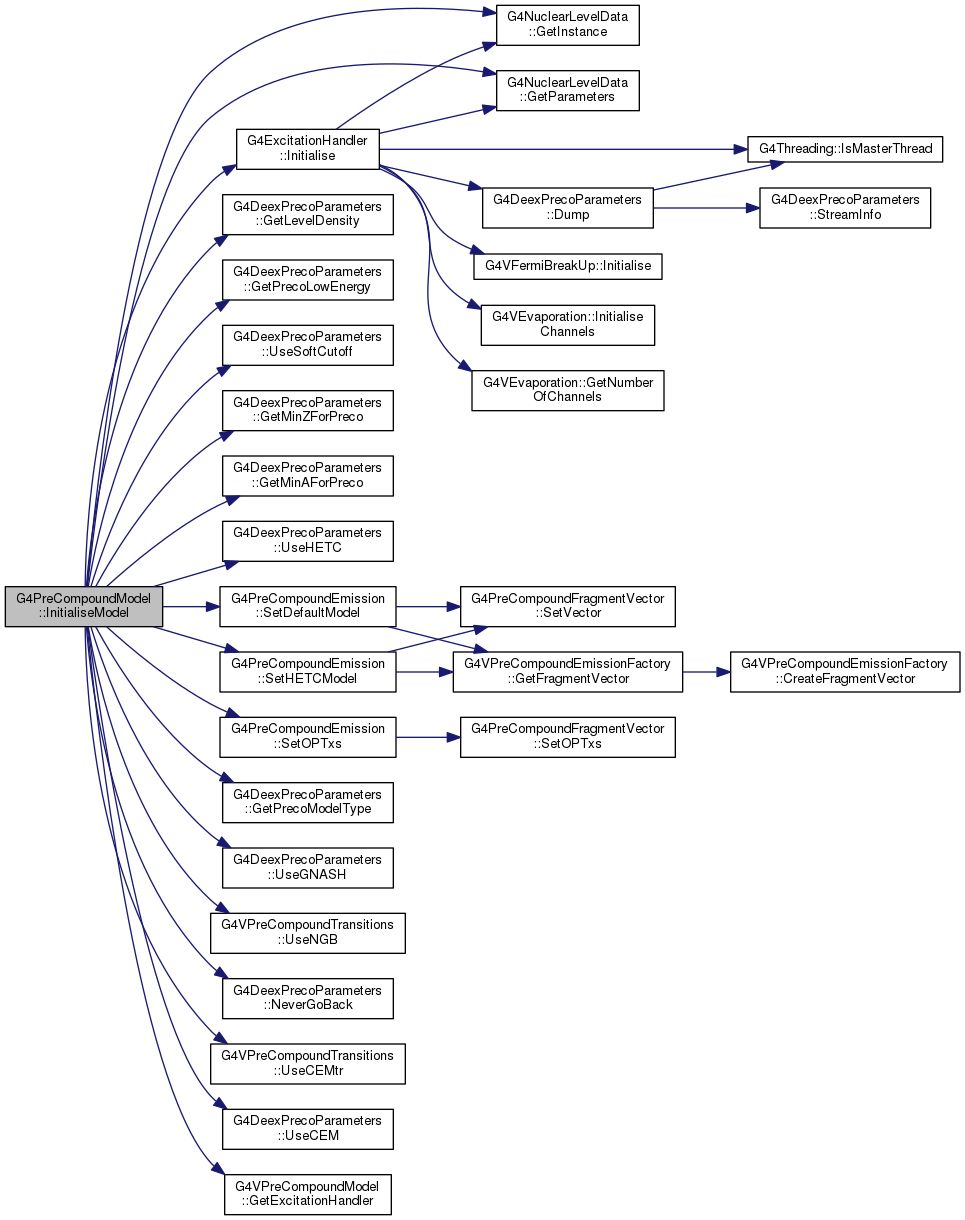|
Geant4
10.03.p03
|
|
Geant4
10.03.p03
|
#include <G4PreCompoundModel.hh>


Additional Inherited Members | |
 Protected Member Functions inherited from G4HadronicInteraction Protected Member Functions inherited from G4HadronicInteraction | |
| void | SetModelName (const G4String &nam) |
| G4bool | IsBlocked () const |
| void | Block () |
 Protected Attributes inherited from G4HadronicInteraction Protected Attributes inherited from G4HadronicInteraction | |
| G4HadFinalState | theParticleChange |
| G4int | verboseLevel |
| G4double | theMinEnergy |
| G4double | theMaxEnergy |
| G4bool | isBlocked |
Definition at line 63 of file G4PreCompoundModel.hh.
|
explicit |
Definition at line 71 of file G4PreCompoundModel.cc.

|
virtual |
Definition at line 85 of file G4PreCompoundModel.cc.

|
finalvirtual |
Implements G4HadronicInteraction.
Definition at line 136 of file G4PreCompoundModel.cc.

|
finalvirtual |
Reimplemented from G4HadronicInteraction.
Definition at line 94 of file G4PreCompoundModel.cc.

|
finalvirtual |
Implements G4VPreCompoundModel.
Definition at line 194 of file G4PreCompoundModel.cc.


|
finalvirtual |
Implements G4VPreCompoundModel.
Definition at line 418 of file G4PreCompoundModel.cc.
|
finalvirtual |
Reimplemented from G4HadronicInteraction.
Definition at line 101 of file G4PreCompoundModel.cc.


|
finalvirtual |
Reimplemented from G4HadronicInteraction.
Definition at line 394 of file G4PreCompoundModel.cc.
Definition at line 355 of file G4PreCompoundModel.cc.
| void G4PreCompoundModel::UseCEMtr | ( | ) |
Definition at line 375 of file G4PreCompoundModel.cc.
| void G4PreCompoundModel::UseDefaultEmission | ( | ) |
Definition at line 340 of file G4PreCompoundModel.cc.
| void G4PreCompoundModel::UseDefaultTransition | ( | ) |
Definition at line 350 of file G4PreCompoundModel.cc.
| void G4PreCompoundModel::UseGNASHTransition | ( | ) |
Definition at line 345 of file G4PreCompoundModel.cc.
| void G4PreCompoundModel::UseHETCEmission | ( | ) |
Definition at line 335 of file G4PreCompoundModel.cc.
| void G4PreCompoundModel::UseNGB | ( | ) |
Definition at line 365 of file G4PreCompoundModel.cc.
| void G4PreCompoundModel::UseSCO | ( | ) |
Definition at line 370 of file G4PreCompoundModel.cc.
| void G4PreCompoundModel::UseSICB | ( | ) |
Definition at line 360 of file G4PreCompoundModel.cc.